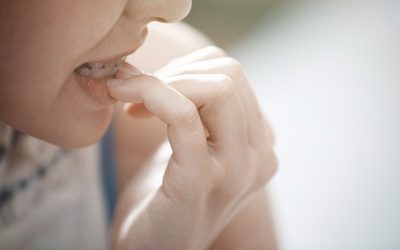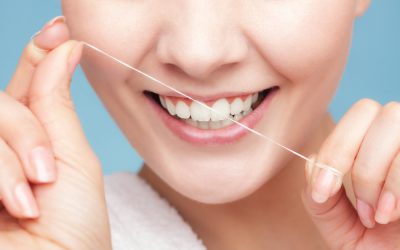There is nothing more precious than watching your baby’s gummy smile transform into an irresistible toothy grin. And from the moment you see those pearly whites we know you want them to stay pearly and white forever. But when it comes to oral care at home, is fluoride safe to use on a child’s new teeth?
Fluoride (derived from a naturally-occurring mineral called fluorine) helps prevent tooth decay from developing, and can even reverse early signs of tooth decay. When we eat and drink sugary items, we release bacteria into our mouths that attacks teeth with acid and wears away the tooth enamel. Over time, this erosion of protective enamel exposes sensitive teeth to decay. Fluoride works by strengthening tooth enamel, which makes it more resistant to acid attacks. There is such a strong correlation between the use of fluoride and the decrease of cavities that in the 1950s water fluoridation was introduced across the United States. Water fluoridation is the process of adding fluoride to drinking water at a level that is effective for preventing cavities. In fact, water fluoridation was so effective at reducing the number of cavities that it was named one of the top public health achievements of the twentieth century.
Despite its value in fighting tooth decay, we understand parental concerns when it comes to using fluoridated products for your child’s tooth care. Up until 2014, the American Dental Association (ADA) recommended parents hold off on using fluoride until their children were at least two years old. But in 2014, the Center for Disease Control (CDC) noticed an uptick in cavities amongst preschool-aged children. And in February 2014, the ADA officially changed their guidelines to recommend children begin using a “smear” of fluoridated toothpaste when their teeth begin to show. The American Academy of Pediatric Dentistry and the American Academy of Pediatrics also recommend that toddlers and children brush their teeth with fluoridated toothpaste.
Cavities can develop at all ages – especially amongst young toddlers who eat sugary snacks or drink a lot of sugary juices – and fluoride is one of the most effective tools for preventing early decay and protecting teeth in the future. When your child’s teeth start coming in, dab a little fluoridated toothpaste on a damp cloth and rub it lightly over the new teeth; this prevents your little one from swallowing too much of the toothpaste. As your child gets older and more teeth push through, teach him or her proper toothbrushing techniques, including how to spit instead of swallow. If your child ingests too much fluoride from toothpaste, fluorosis can develop. Fluorosis occurs when excessive fluoride exposure causes tooth enamel to change color. This can appear as small white spots on teeth, and children are particularly susceptible to fluorosis while their teeth are still developing. However, fluorosis is a cosmetic condition that will cause no negative health effects and can be cleared up by your dentist.
As of today, fluorosis is the only condition that can be definitively linked to fluoride exposure. Other theories – that fluoride can cause cancer or neurological defects – have not been conclusively proven by research. On the flip side, there are concrete studies that demonstrate how fluoride prevents tooth decay, and that the number of cavities decreases in areas with fluoridated water.
When it comes to your child’s oral care at home, know that fluoride is safe and effective in the amounts that are found in tap water and toothpaste. The ADA recommends children begin brushing their teeth regularly at the age of one. Talk to your dentist about fluoride use and consider the following factors:
- Is your child getting fluoride from tap water? Call your local water provider to find out.
- Does your child eat and drink sugary snacks and juice, which could place him or her at higher risk for cavities?
- Does your child need to be taking a fluoride supplement? Supplements must be prescribed by your dentist and are most likely unnecessary if you live in an area with fluoridated water.
Here at Boyett Family Dentistry, Dr. Boyett and her team of warm and caring hygienists are always available to answer any questions you may have about the safety of using fluoride in your child’s oral care. Call our office at 863-294-9200 and schedule an appointment.





